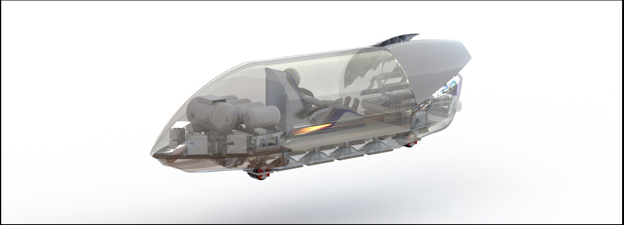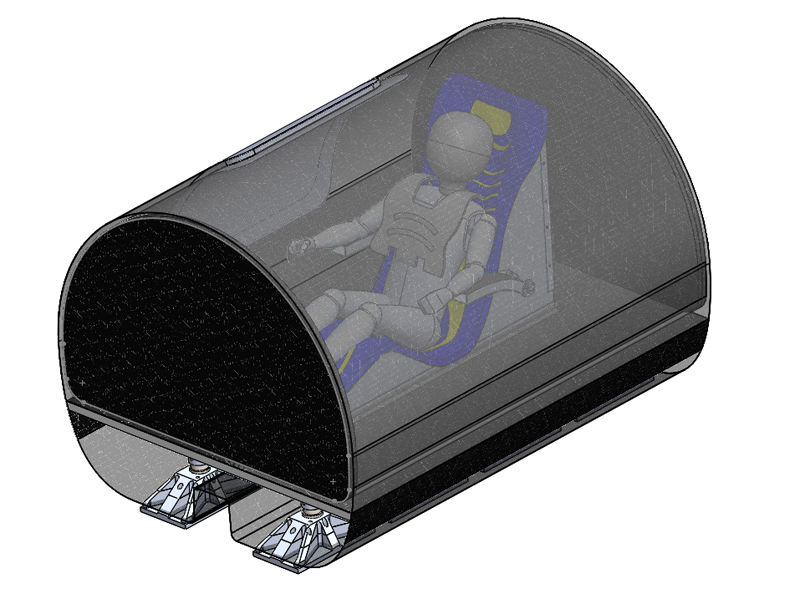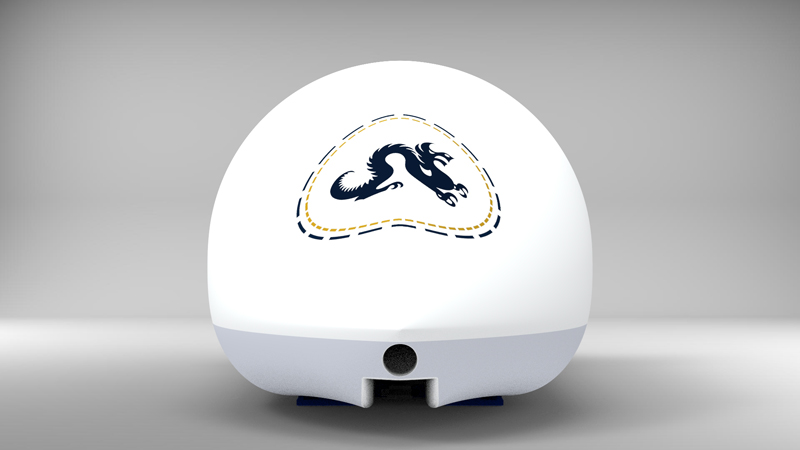Update: The Drexel Hyperloop team is among 22 teams who have been chosen to advance in the 2016 SpaceX Hyperloop Pod Competition after their initial design was presented January 29-30. The next step will be developing and presenting a prototype in June, 2016.
Imagine zooming between cities in a high-speed transportation pod at 700-
plus miles an hour, all the while levitated above a small pocket of air. Cool,
right?
Now imagine designing, engineering, manufacturing, marketing a prototype of
that very pod, all from scratch and while still an undergraduate student. For
about 80 students at Drexel University, that is out-of-this-world, hyper
cool.
 “This is not just a project you do in school,” says Om Mahida, 22, a junior
computer engineering student from Mount Laurel, N.J., who’s involved in
software development for the pod’s control system. “You’re basically running
your own start up.”
“This is not just a project you do in school,” says Om Mahida, 22, a junior
computer engineering student from Mount Laurel, N.J., who’s involved in
software development for the pod’s control system. “You’re basically running
your own start up.”
Known as Drexel Hyperloop, the team is racing to
put finishing touches by month’s end on its ambitious concept—a bullet-like
capsule with a Drexel Dragon logo, all for the SpaceX Hyperloop Pod
Competition. At a Jan. 29-30 Design Weekend at Texas A&M University, 120
college teams from the U.S. and around the world, will present ideas for this
new mode of ground transportation to SpaceX, the space transportation company
of CEO and inventor Elon Musk, academics, and other judges. Most teams are
focusing on a subsystem, but Drexel Hyperloop is among the few that decided to
take on the whole shebang, down to a design for a pod transit station.
Those that make the cut—meaning they secured tech company sponsors to build
prototypes that can cost upwards of $60,000—advance to the Big Dance this
summer at SpaceX headquarters in Hawthorne, Calif. There, teams will test
subsystems or the speed of model pods on a mile long Hyperloop, which is the
near-vacuum transportation tube that Musk proposed in 2013.
 The concept works like this: Pods for either passengers or cargo float on a
very thin air cushion to minimize friction, the main culprit that limits speed,
and as a result attain miles per hour, at least theoretically, close to Mach 1.
Think of it as a puck on an air-hockey table. A six-hour car ride between Los
Angeles and San Francisco would be cut to a mere 30 minutes on a Hyperloop. The
contest, its website says, is a way to accelerate the development of the best
system.
The concept works like this: Pods for either passengers or cargo float on a
very thin air cushion to minimize friction, the main culprit that limits speed,
and as a result attain miles per hour, at least theoretically, close to Mach 1.
Think of it as a puck on an air-hockey table. A six-hour car ride between Los
Angeles and San Francisco would be cut to a mere 30 minutes on a Hyperloop. The
contest, its website says, is a way to accelerate the development of the best
system.
“We have a great chance of doing very well in this competition,” says
Richard Crane, 23, of Litchfield, Conn., a mechanical engineering major whose
senior project encompasses his work on air bearings for the Hyperloop team.
Crane does some quick calculations and points out that the team of
sophomores to seniors has cumulative co-op experience of 90-plus years and has
already put in more than 20,000 hours on the team since the process kicked off
last June.
“I didn’t go home over Christmas break,” he says. “I stayed here all three
weeks and did [simulation] testing.”
Crane, like a lot of the team members, enjoys a challenge. In fact, he
became an engineer in large part because a high school physics teacher doubted,
based on his struggles in the class, that he had what it took. “I decided to
take the challenge,” he says. “I’ve made it to my senior year and hopefully
I’ll finish strong.” In fact, Crane did co-ops at SpaceX and was invited to
return after graduation for a trial run at a job.
Mahida’s co-ops were at Lockheed Martin, where he focused on software for
signal processing of radar systems. He has been developing an AI assistant that
eliminates the need for other apps. For example, you simply send a message on
Facebook and Slack to set reminders, ask for weather, or even tell you
jokes.
 Mahida says he joined the Hyperloop competition because he takes great
satisfaction in figuring out software hiccups.
Mahida says he joined the Hyperloop competition because he takes great
satisfaction in figuring out software hiccups.
“Every meeting we have, something new pops up,” he says of the team
debriefings, “and we fix it right away.”
On Feb. 11, Drexel Hyperloop will host a mini-Design Weekend from 6 p.m. to
8 p.m. on campus for alumni and Philadelphia-area companies to learn more about
the project.
To support Drexel Hyperloop, please click here.
By Lini S. Kadaba